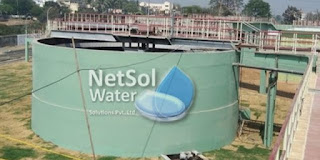How does the use of pesticides in agriculture contribute to water pollution and what alternatives are available?
Water pollution is a growing concern all over the world, and one of the leading causes of it is pesticide use. While pesticides are used to protect crops from insects and other pests, they can also have a negative impact on water sources if not managed properly.
In this blog post,
we’ll look at how pesticide use can lead to water pollution and what alternatives
are available to address the issue.
Pesticides are
designed to target certain pests and organisms, but they don’t discriminate
between those they intend to kill and other organisms that may be in the
environment. When pesticides enter a water source, they can harm aquatic life
including fish, frogs, turtles, and other animals that depend on clean water
for survival.
Ultimately
understanding how pesticide use impacts our waterways is key when it comes to
protecting them from pollution caused by chemicals like these which have
far-reaching consequences on both wildlife and humans alike!
Replacing hazardous
pesticides with safer alternatives can be done through sustainable practices
and achieved in a cost-effective manner. Examples of pesticide risk reduction
approaches include:
One way to reduce
water pollution from pesticides is through Integrated Pest Management (IPM).
IPM uses a variety of pest control methods such as biological control,
mechanical barriers, trapping, and cultural controls instead of relying solely
on chemical pesticides. Biological control involves using natural predators to
control pests, such as predatory insects or fungi. Mechanical barriers can help
to keep pests away from crops, while trapping can capture and remove pests from
the area. Cultural controls like crop rotation and sanitation can also be used
to reduce pest populations.
By utilizing pesticide
alternatives such as IPM, mechanical barriers, trapping methods, cultural
controls, and organic pesticides, we can greatly reduce water pollution caused by
pesticides. With a greener solution in place that focuses on prevention rather
than remediation of damage done after it has already occurred, our planet’s
water systems can be better protected for future generations.
Use of organic
pesticides:
Another way to reduce
water pollution is by using organic pesticides. Organic pesticides are derived
from natural sources like plants and minerals and are considered safer than
chemical-based ones. Additionally, organic pesticides break down more quickly
in the environment, meaning they have less of an impact on water systems in the
long run. This practice not only reduces the risk of water
contamination but also helps maintain healthy soil and boosts biodiversity in
agricultural areas.
Biological pest
control
It is using natural
predators to control pests. For example, ladybugs eat aphids, so farmers can
release ladybugs into their fields to help control the aphid population.
Biological pesticides are chemicals made from natural substances that can kill
pests. These are usually safer for the environment than synthetic pesticides.
Conclusion:
The use of pesticides
has been widely accepted as an effective way to protect crops, but its
long-term effects on water pollution are becoming increasingly evident, making
it important to explore alternative solutions to protect food production
without causing further damage to our environment. Alternatives to using pesticides include
organic farming, the use of beneficial insects, crop rotation, and
intercropping. Organic farming is based on fertilizing without the use of
chemical fertilizers or pesticides, relying instead on natural methods such as
composting and crop rotation.
Overall, despite the
environmental risks posed by pesticide use for agriculture production, there are
several alternatives available that limit or even eliminate potential damage
caused by these chemicals entering our waterways.
From organic farming
practices to integrated pest management systems and biopesticide use – we have
numerous options available when it comes to protecting our environment from
pesticide-related water pollution!
You may call/WhatsApp
us at +91-9650608473 for any questions you may have about commercial or
industrial RO plants, or you can send an email to enquiry@netsolwater.com

Comments
Post a Comment